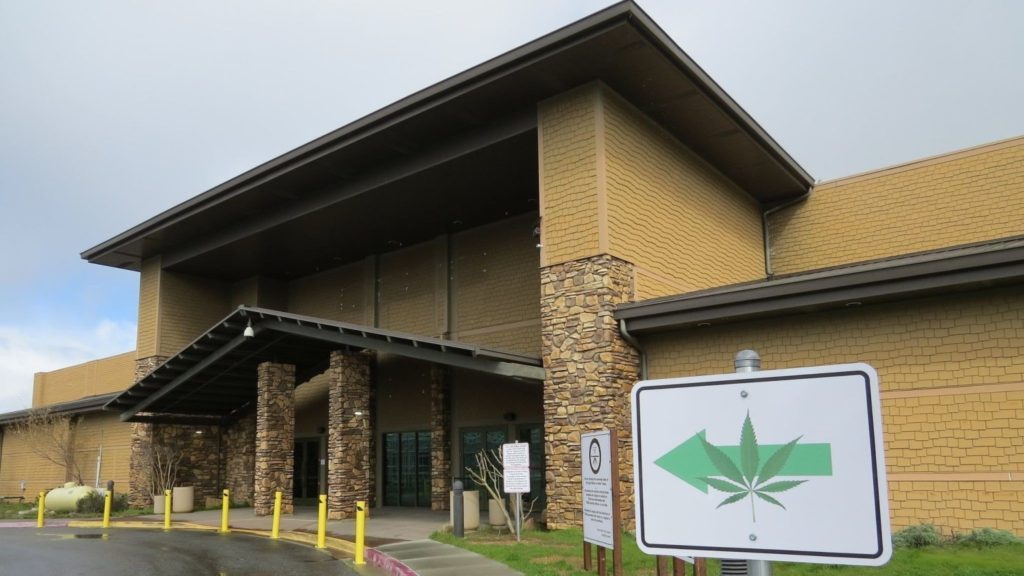
The outcome of last year’s cannabis referendum was bitter for many Maori people. Despite that some 80% of Maoris voted in favour of changing the law, heavy anti-cannabis sentiment among Pacific Islander and Asian voters saw the referendum ultimately fail. Fortunately for all, an elegant solution exists overseas, and we could copy it.
The 2020 cannabis referendum was close. 50.7% of eligible voters wanted to continue with cannabis prohibition, and 48.4% did not. There was a significant positive correlation between being New Zealand-born and voting Yes in the referendum, so within that 50.7% were a large number of recent immigrants, particularly Chinese ones. Some 80% of Chinese voters voted in favour of locking Kiwi cannabis users in cages.
There are roughly 250,000 ethnic Chinese in New Zealand. Assuming that 80% of them were eligible to vote in the referendum, and assuming that 80% of those did, that gives us 160,000 ethnic Chinese voters. We know from above that 80% of those voted in favour of cannabis prohibition, which gives us 128,000 Chinese No voters opposed to 32,000 Chinese Yes voters. This represents a majority of around 96,000 for the No side among Chinese voters.
In the cannabis referendum overall, 1,474,635 people voted in favour of the continued persecution of cannabis users, and 1,406,973 voted to end it (for more detail on who these people were, see Understanding New Zealand 3). This means that the No side won the cannabis referendum by 67,662 votes.
So a little bit of primary school-level maths shows us that non-Chinese voters wanted to change the cannabis laws. But the native Kiwi majority that wanted reform was forced to endure further prohibition because of the wishes of recent immigrants, often from totalitarian political systems, and with little understanding of our culture.
For someone born in New Zealand, with centuries-deep roots in New Zealand, it seems outrageous to me that voters who came to New Zealand in the last decade took away our right to use cannabis. The voters who have flooded into the country since John Key threw the borders open have no real loyalty to, or respect for, the New Zealand people. They shouldn’t be deciding what rights the rest of us have.
That mostly rural-dwelling Maoris wanted legal cannabis, but got trumped by city-dwelling Pacific Islanders and Asians, has worsened existing social tensions in New Zealand. Maoris already had reason to resent the cannabis laws, which were forced on them by outsiders in the first place. The Sixth Labour Government’s response to their 80% support for legal cannabis has been, so far, to tell them to go fuck themselves.
One obvious, and obviously superior, solution presents itself.
In 2014, the United States Federal Government stated that it would not interfere with any Indian reservation or territory that wanted to legalise cannabis on its land. This declaration was a formality that followed from their already declared policy of non-interference with legal cannabis in Colorado.
One tribe, that of Squaxin Island in Washington, opened a legal cannabis store called ‘Elevation’ in 2015. First nations peoples in Canada have also allowed for legal cannabis sales on their lands. Native tribes in the Americas are generally pro-cannabis for the same reasons that Maoris are: they know it’s much better for them than alcohol is and that cannabis prohibition was pushed on them by outsiders.
This article proposes that the New Zealand Government allow individual Maori tribes to legalise and sell cannabis on their land.
There are two major benefits to this proposal.
The first, and most major, is that it shows some respect to the 48.4% of Kiwis and roughly 80% of Maoris who want a legal respite from cannabis prohibition. Currently, these two groups of people are told that they just have to eat shit, because neither a Labour nor a National Government will do anything about the cannabis laws.
Legal cannabis sales on Maori land would allow for the pro-cannabis half of the population to freely access and to use cannabis there, away from the judgment of those who think they’re scum. This would allow for the custodians of that land to build cannabis dispensaries, cafes and accommodation for the cannabis tourists. If the anti-cannabis half of the population doesn’t like it, they can stay in the cities and drink booze.
The second major benefit, or group of benefits, relate to the tourism potential of this proposal.
If you’re a young Western tourist, and you can choose between travelling to the American West Coast and using cannabis and alcohol, or travelling to New Zealand and using alcohol only, it’s an easy decision. About as easy as choosing between travelling to a Western country and using alcohol or travelling to a Middle Eastern theocracy and using nothing.
Legalising cannabis on Maori land would create a massive tourism boost in rural and impoverished areas like Northland and the East Coast of the North Island. These areas would benefit from both domestic and international tourists, and it would also create a spillover tourism effect for non-Maori businesses who catered to the international tourists who would otherwise have gone to a country with legal cannabis.
The idea of legalising cannabis on Maori land is a sure win for the first party to propose it. It’s the kind of solution that New Zealand needs. Unfortunately, our current parties are either bereft of imagination or more interested in grandstanding than making positive, practical solutions.
*
If you enjoyed reading this essay/article, you can get a compilation of the Best VJMP Essays and Articles of 2020 from Amazon for Kindle or Amazon for CreateSpace (for international readers), or TradeMe (for Kiwis). A compilation of the Best VJMP Essays and Articles of 2019, the Best VJMP Essays and Articles of 2018 and the Best VJMP Essays and Articles of 2017 are also available.
*
If you would like to support our work in other ways, please consider subscribing to our SubscribeStar fund. Even better, buy any one of our books!
